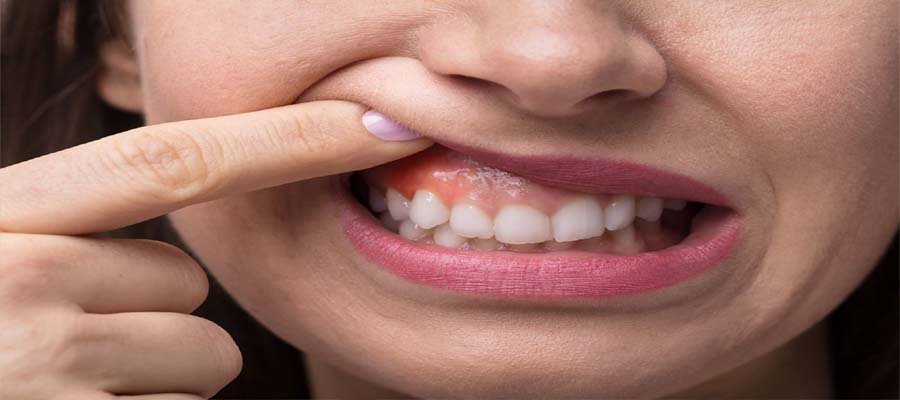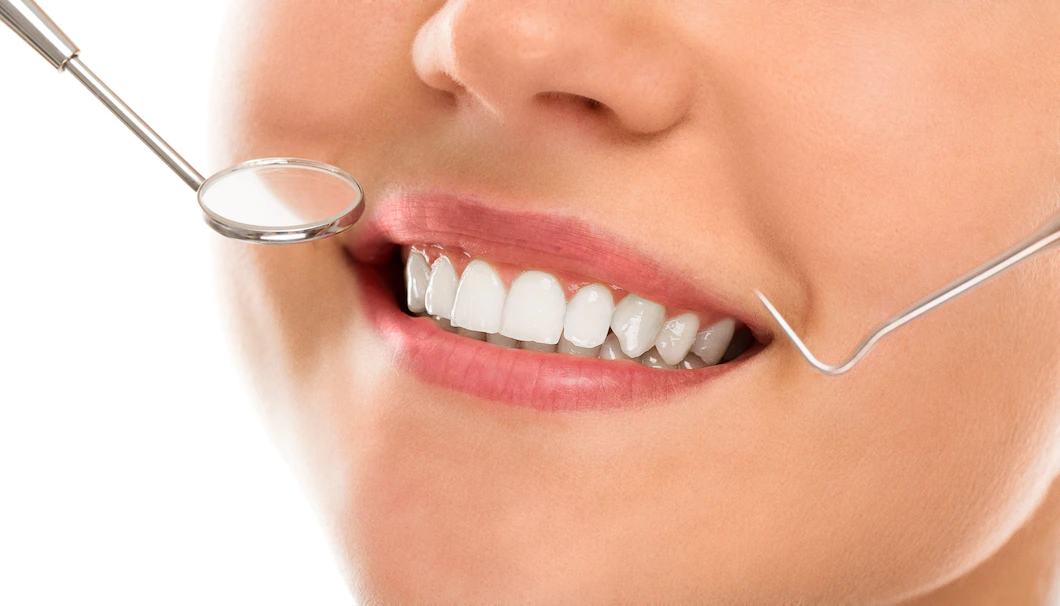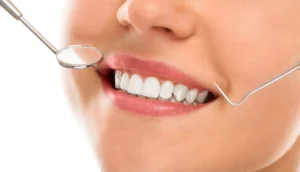**Unlock Your Best Smile: Expert Tips for Preventing and Treating Teeth Diseases**Your smile is one of your most valuable assets, a universal language that conveys confidence, warmth, and approachability. But did you know that maintaining that radiant grin goes far beyond the occasional brushing? Enter the world of dental health—a realm where prevention meets treatment, ensuring not just a beautiful smile but also robust overall well-being. In this blog post, we’ll dive into expert tips for preventing and treating teeth diseases, arming you with knowledge to combat plaque attacks and stave off cavities. From daily habits to professional treatments, join us on a journey towards achieving—and preserving—your healthiest smile yet!
Introduction: The Importance of Oral Health
Your smile is one of your most valuable assets. It reflects your personality and boosts your confidence. Yet, many people overlook the importance of maintaining good oral health until it’s too late. Teeth diseases can sneak up on you, leading to discomfort, costly treatments, and even tooth loss. Understanding how to prevent these issues is key to enjoying a bright smile for years to come. By learning about common teeth diseases and embracing effective prevention strategies, you can take charge of your dental Health Today!
Common Teeth Diseases and Their Causes
Teeth diseases can affect anyone, regardless of age. Understanding their causes is crucial for prevention.
Cavities are among the most common issues. They develop when bacteria in plaque produce acids that erode tooth enamel. Poor oral hygiene and a sugary diet significantly increase the risk.
Gum disease, or periodontal disease, often stems from neglected dental care. Plaque buildup leads to inflammation and infection of gum tissues. If left untreated, it can result in tooth loss.
Another concern is teeth sensitivity, which may arise from worn enamel or exposed roots due to gum recession. This condition makes eating hot or cold foods uncomfortable.
Tooth decay and discoloration can also occur due to certain medications or excessive fluoride exposure during childhood.
Being aware of these problems helps you take proactive measures for your dental health.
Tips for Preventing Teeth Diseases:
Brushing your teeth twice a day is essential. Make sure to use fluoride toothpaste and a soft-bristled toothbrush. Focus on the front, back, and chewing surfaces of each tooth for at least two minutes.
Don’t forget about flossing! It reaches areas that brushing alone cannot. Aim to floss daily, sliding it gently between your teeth without snapping.
Your diet plays a crucial role in oral health. Reduce sugary snacks and drinks as they can lead to cavities. Instead, opt for crunchy fruits and vegetables like apples or carrots that naturally help clean Treating Teeth Diseases.
Stay hydrated by drinking plenty of water throughout the day. Water helps wash away food particles and bacteria, keeping your mouth fresh.
Regular dental check-ups are vital too. Visiting your dentist every six months allows for early detection of any potential issues before they escalate into serious problems.
– Brushing and Flossing Techniques
Effective brushing and flossing are the cornerstones of oral health. To start, choose a soft-bristled toothbrush that fits comfortably in your hand and mouth. Use fluoride toothpaste for extra protection against cavities.
When brushing, hold your toothbrush at a 45-degree angle to your gums. This position allows you to clean both the teeth surfaces and the gum line effectively. Brush gently in circular motions for at least two minutes, ensuring you cover all areas—inner, outer, and chewing surfaces.
Flossing is just as crucial but often overlooked. Take about 18 inches of dental floss and wind it around your fingers for better control. Gently slide it between each tooth in a C-shape motion, making sure to reach below the gum line without snapping or forcing it.
Incorporating these techniques into your daily routine can significantly reduce plaque buildup and prevent Treating Teeth Diseases down the road.
– Proper Nutrition for Healthy Teeth
Proper nutrition plays a crucial role in maintaining healthy teeth. Your diet directly affects the strength and appearance of your smile.
Incorporating calcium-rich foods is essential. Dairy products like yogurt, cheese, and milk help build strong enamel. Leafy greens are also great sources of this vital mineral.
Don’t forget about vitamin C! Citrus fruits, strawberries, and bell peppers can boost gum health by preventing inflammation. A vibrant array of vegetables not only supports your immune system but also keeps harmful bacteria at bay.
Limit sugary snacks and beverages. They can lead to plaque buildup, which contributes to tooth decay. Instead, snack on crunchy fruits or veggies that naturally clean your teeth while you eat them.
Hydration matters too! Drinking water helps wash away food particles and neutralizes acids produced by bacteria in the mouth. It’s an easy yet effective way to support oral health every day.
– Regular Dental Check-ups
Regular dental check-ups are essential for maintaining oral health. These visits allow your dentist to catch potential issues early, often before they become serious problems.
During a check-up, the dentist will examine your teeth and gums thoroughly. They look for signs of decay, gum disease, or other abnormalities. Early detection is key in preventing more extensive treatments down the line.
Additionally, professional cleanings remove plaque and tartar that regular brushing may miss. This helps keep your smile bright and healthy while reducing the risk of cavities.
Your dentist can also provide personalized advice tailored to your specific needs. Whether it’s tips on improving your brushing technique or dietary adjustments, these insights can make a significant difference.
Aim for at least two visits per year to ensure you’re giving yourself the best chance at a lifetime of good oral health. Prioritize these appointments; they’re an investment in your well-being.
Treating Teeth Diseases:
When it comes to treating teeth diseases, options abound. Professional treatments like fillings and root canals address decay and damage effectively. Fillings restore structure when cavities form, while root canals save infected teeth from extraction.
For those seeking alternative methods, natural remedies can complement traditional treatments. Oil pulling is one such technique believed to reduce harmful bacteria in the mouth. Swishing coconut oil for a few minutes daily may promote better oral health.
Herbal mouthwashes are another option worth considering. Ingredients like tea tree oil or aloe vera offer antibacterial properties that help combat plaque buildup and soothe inflamed gums.
However, remember that these home remedies should not replace professional care. Regular visits to your dentist remain essential for monitoring oral health and addressing any emerging issues promptly. Each treatment aligns with an overall strategy focused on maintaining healthy teeth and gums long-term.
– Professional Treatments (e.g. fillings, root canals)
When it comes to dental care, professional treatments play a crucial role in addressing Treating Teeth Diseases. Fillings are one of the most common solutions for cavities. A dentist removes decayed material and fills the cavity with durable substances like composite resin or amalgam.
Root canals, on the other hand, tackle more severe tooth issues. They involve removing infected pulp from within a tooth’s root. After cleaning and disinfecting the area, dentists seal it to prevent further infection. This procedure can save your natural tooth and alleviate pain.
Both treatments aim not only to restore function but also to maintain overall oral health. Prompt attention is essential; delaying treatment can lead to increased complications down the line. Trusting your dental professionals with these procedures ensures that you’re taking significant steps toward lasting dental wellness.

– Natural Remedies (e.g. oil pulling, herbal mouthwashes)
Natural remedies have gained popularity as effective alternatives for managing teeth diseases. Among these, oil pulling stands out. This ancient practice involves swishing a tablespoon of oil—like coconut or sesame—around your mouth for 15-20 minutes. It helps remove bacteria and promotes oral hygiene.
Herbal mouthwashes are another great option. Many people turn to ingredients like sage, chamomile, or peppermint due to their antibacterial properties. You can easily make DIY herbal rinses at home using simple recipes that blend herbs with warm water.
Clove oil is also noteworthy; it has natural analgesic qualities that can provide relief from toothaches. Just a drop on the affected area may help soothe discomfort.
These remedies not only contribute to healthier teeth but also enhance breath freshness without harsh chemicals commonly found in commercial products. Integrating them into your daily routine can be beneficial for overall dental health.
Maintaining a Healthy Smile:
Maintaining a healthy smile goes beyond the basics of brushing and flossing. Daily habits play a significant role in your oral health journey.
Start each day with a thorough brushing session. Choose fluoride toothpaste for added protection against cavities. Don’t forget to replace your toothbrush every three months.
Flossing is equally important. It helps remove food particles stuck between teeth, preventing plaque buildup. Aim to floss at least once daily for best results.
Incorporate mouthwash into your routine as well. An antimicrobial rinse can combat bacteria that lead to gum disease and bad breath.
Stay hydrated throughout the day, too. Drinking water not only aids digestion but also rinses away food debris from your teeth.
Consider reducing sugary snacks and drinks, which can contribute to tooth decay over time. Opt for crunchy fruits or vegetables instead; they naturally clean teeth while providing essential nutrients.
– Daily Habits for Good Oral Hygiene
Good oral hygiene starts with daily habits that are easy to incorporate into your routine. Begin each day by brushing your teeth for at least two minutes. Use fluoride toothpaste and focus on all surfaces of the teeth.
Flossing is just as vital. It removes food particles and plaque from areas a toothbrush can’t reach. Aim to floss at least once a day, ideally before bedtime.
Don’t forget about rinsing! A good mouthwash can help reduce bacteria levels and freshen breath. Choose an alcohol-free option to avoid dryness.
Stay hydrated throughout the day, too. Drinking water helps wash away food debris and keeps saliva flowing, which is essential for neutralizing acids in the mouth.
Limit sugary snacks between meals; they contribute significantly to tooth decay. Instead, opt for crunchy fruits and vegetables that promote gum health while offering natural sweetness.
– Lifestyle Changes to Improve Dental Health
Making simple lifestyle changes can significantly enhance your dental health. Start by cutting back on sugary snacks and beverages. Instead, opt for fruits, nuts, and whole grains that nourish both your body and teeth.
Stay hydrated throughout the day. Water helps wash away food particles and reduces acidity in the mouth. It’s a natural way to keep cavities at bay.
Consider incorporating more calcium-rich foods into your diet. Dairy products like yogurt or cheese strengthen enamel and support overall tooth structure.
Another vital change is quitting smoking or using tobacco products. These habits are detrimental to oral health, leading to gum disease and tooth loss over time.
Regular physical activity also plays a role in maintaining healthy gums and teeth. Exercise boosts blood circulation, which benefits not just your heart but also your oral tissues!
Conclusion: The Power of Prevention and Seeking Professional Help
Maintaining a healthy smile is achievable with the right approach. Prevention plays a crucial role in reducing the risk of Treating Teeth Diseases and their associated treatments. Consistent oral hygiene practices, like brushing and flossing, form your first line of defense against cavities and gum disease.
Nutrition also significantly impacts dental health; incorporating foods rich in vitamins and minerals can strengthen your teeth. Regular visits to the dentist ensure that any issues are detected early, allowing for timely intervention.
When it comes to treating existing Treating Teeth Diseases, professional help is vital. Dentists have access to advanced techniques to address various conditions effectively. Natural remedies may provide additional support but should not replace Traditional Treatments when needed.
Adopting daily habits that promote good oral hygiene goes hand-in-hand with lifestyle changes aimed at improving overall dental health. Simple adjustments can make a big difference over time.
Prioritizing both prevention strategies and seeking professional assistance creates a comprehensive plan for maintaining excellent oral health throughout life. Your bright smile deserves nothing less than commitment and care.











